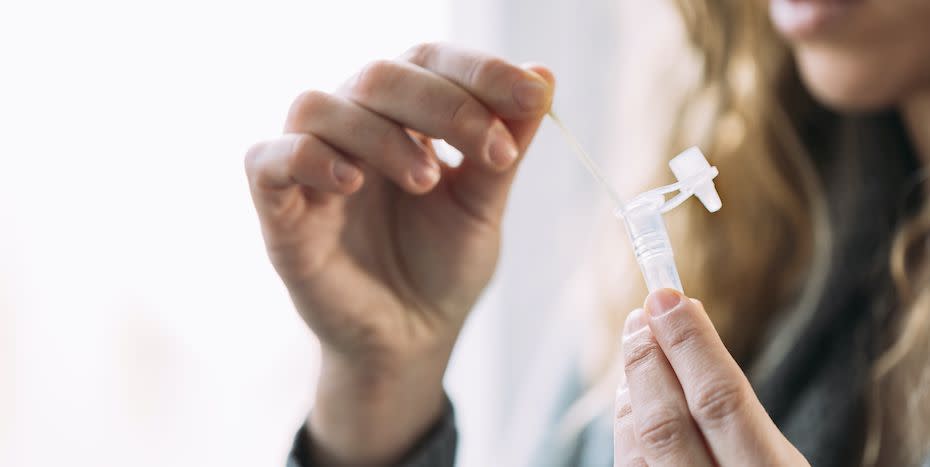This new COVID-19 symptom could be mistaken due to the heatwave

There's no denying that the UK is hot right now, and the last few days have been a struggle. Many of us will have made BFFs with our fans as we work from home, whilst others have found themselves heading to Google in search of heat-beating hacks. But one thing we've all found difficult as of late is getting to sleep – which has been hard with a capital H, especially given that in some places of the UK, overnight temperatures have not dropped below 25 degrees.
Of course, the warm days and equally as warm nights have knock-on effects, such as waking up in a pool of your own sweat. Nice! It has recently been discovered though that night sweats are also a symptom of the BA.5 COVID-19 strain currently making its way around the UK.
An "extra symptom for BA.5 I saw this morning [July 7] is night sweats", Professor Luke O'Neill at Trinity College told the Irish Mirror. Explaining the emergence of the new symptom, the expert added, "The disease is slightly different because the virus has changed."
O'Neill continued: "[The] mix of your immune system and the virus being slightly different might give rise to a slightly different disease, with – strangely enough – night sweats being a feature."
As well as night sweats, it's important that we're all still aware of the other COVID-19 symptoms.

According to the NHS, these include:
A high temperature or shivering (chills)
A new, continuous cough
A loss or change to your sense of smell or taste
Shortness of breath
Feeling tired or exhausted
An aching body
A headache
A sore throat
A blocked or runny nose
Loss of appetite
Diarrhoea
Feeling sick or being sick
Recent research from the the ZOE app (which asks users to record their coronavirus symptoms) also found that a headache is now the most-reported telltale sign that someone has contracted coronavirus.
So, let this be a reminder to keep testing where possible to help keep others safe!
This article is not intended to be a substitute for professional medical advice or diagnosis. Always seek the advice of your physician or other qualified health provider with any questions you may have regarding a medical condition.
You Might Also Like

